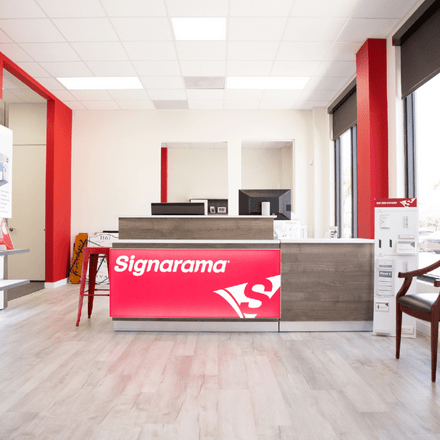Toy store
The European toy industry continues to develop, driven by a consistent demand for children’s products, including educational, traditional, and modern toys. Franchising in this sector allows business owners to benefit from established brand recognition and operational support. Popular toy store franchises provide structured business models and assistance with launching and managing stores, ensuring compliance with brand standards.
Leading toy store franchises
Prominent brands offering franchise opportunities in Europe include Toys “R” Us, Toy Planet, and Hamleys. Each of these companies operates on a franchising model designed to support new business owners with established systems and access to supply chains.
Toys “R” Us operates stores in multiple European countries and provides franchising options in selected regions. The required investment ranges from €300,000 to €600,000, including a franchise fee of approximately €50,000, inventory, and store setup costs. Stores are typically located in urban areas or shopping centers to attract consistent foot traffic.
Toy Planet, originating in Spain, has expanded its franchise model across Europe. The investment needed for a Toy Planet franchise ranges from €150,000 to €250,000, with a franchise fee of around €20,000. The business model focuses on affordability, offering a wide variety of products to meet diverse customer needs.
Hamleys, a well-known brand in the premium toy segment, offers franchises in several European countries. Opening a Hamleys store requires an investment of €500,000 to €1 million, depending on store size and location. The brand emphasizes the creation of experiential retail spaces that attract families and children.
Financial requirements
Launching a toy store franchise involves several costs, including the franchise fee, store setup, and inventory. Franchise fees for toy store brands range from €20,000 to €50,000, depending on the brand and market presence. Additional costs for store design, shelving, and initial marketing campaigns vary by location, with premium brands typically requiring higher investments.
Ongoing costs include royalty fees, usually 5% to 10% of monthly revenue, and contributions to marketing funds. These costs support national advertising campaigns and continuous brand development. Entrepreneurs are advised to allocate working capital for covering operational expenses, such as rent and salaries, during the first months of operation.
Steps to open a toy store
The process begins with selecting a suitable brand and conducting market research to identify demand for children’s products in a specific area. After choosing a franchise, an application must be submitted to the franchisor, including details about financial resources and potential store locations.
Franchisees are required to meet the franchisor’s criteria, which may involve interviews and an evaluation of business plans. Upon approval, the franchisor assists with location selection, lease negotiations, and store design to align with brand guidelines.
Training programs are provided for franchisees and their teams, covering inventory management, customer service, and operational procedures. Franchisors also offer tools for tracking sales and managing stock levels, ensuring efficiency from the outset.
Franchisor support
Franchisors provide a range of services to support new business owners. These include access to supply chains, ensuring stores are stocked with seasonal and popular products. Brands like Toys “R” Us use data analytics to help franchisees optimize inventory and respond to consumer trends.
Marketing support is a key component of franchise agreements. Franchisors manage national and regional advertising campaigns, which benefit all franchise locations. Individual store promotions are often coordinated with these larger efforts to maintain consistency.
Operational assistance includes regular training sessions, site visits, and ongoing consultation. Brands like Hamleys focus on creating engaging in-store experiences, providing guidelines and resources to franchisees to enhance customer satisfaction.
The toy store sector in Europe relies on consistent demand for children’s products, with seasonal peaks during holidays. Franchise models reduce the risks of entering this competitive market by providing established branding and operational systems. Franchisees gain access to proven methods for inventory management, marketing, and customer engagement, increasing the likelihood of success.
 Selecting a niche / The process begins with selecting a suitable brand and conducting market research to identify demand for children’s products in a specific area.
Selecting a niche / The process begins with selecting a suitable brand and conducting market research to identify demand for children’s products in a specific area. read articles
 A global franchise in signage industry
/2025-06-18
A global franchise in signage industry
/2025-06-18
Signarama operates over 700 locations worldwide, offering a comprehensive signage franchise model backed by extensive training and support.
SolarToday offers a structured franchise model for those interested in distributing solar energy systems across growing European markets.
We currently operate in 15 European countries, including Poland, Germany, Austria, Slovakia, France, Spain, and others - says Jiří Bártík, EXTRA SERVICES Sales Manager.
Swedish KAYAKOMAT offers a scalable outdoor franchise for automated kayak and SUP rental. Here's how to start your own station in Europe.
Discover how Jan-Pro Europe's structured franchise model empowers entrepreneurs in the cleaning industry through training, support, and guaranteed clients.
most read
 Franchise cost breakdown
/2024-09-30
Franchise cost breakdown
/2024-09-30
Before signing a franchise deal this fall, learn about the hidden costs beyond the initial fee—renovations, equipment, and royalty fees.
With more than 50 years in the business, Intermarché is a truly European retail superpower.
Enter the world of Turkish coffee with Gönül Kahvesi. Learn about investment details, support, and why this boutique concept stands out globally.
McDonald’s is the world’s most successful and recognisable fast-food restaurant. The secret to their success won’t be found in the sauce of any big mac.
The fast-food restaurant chains $1 billion international expansion plan


